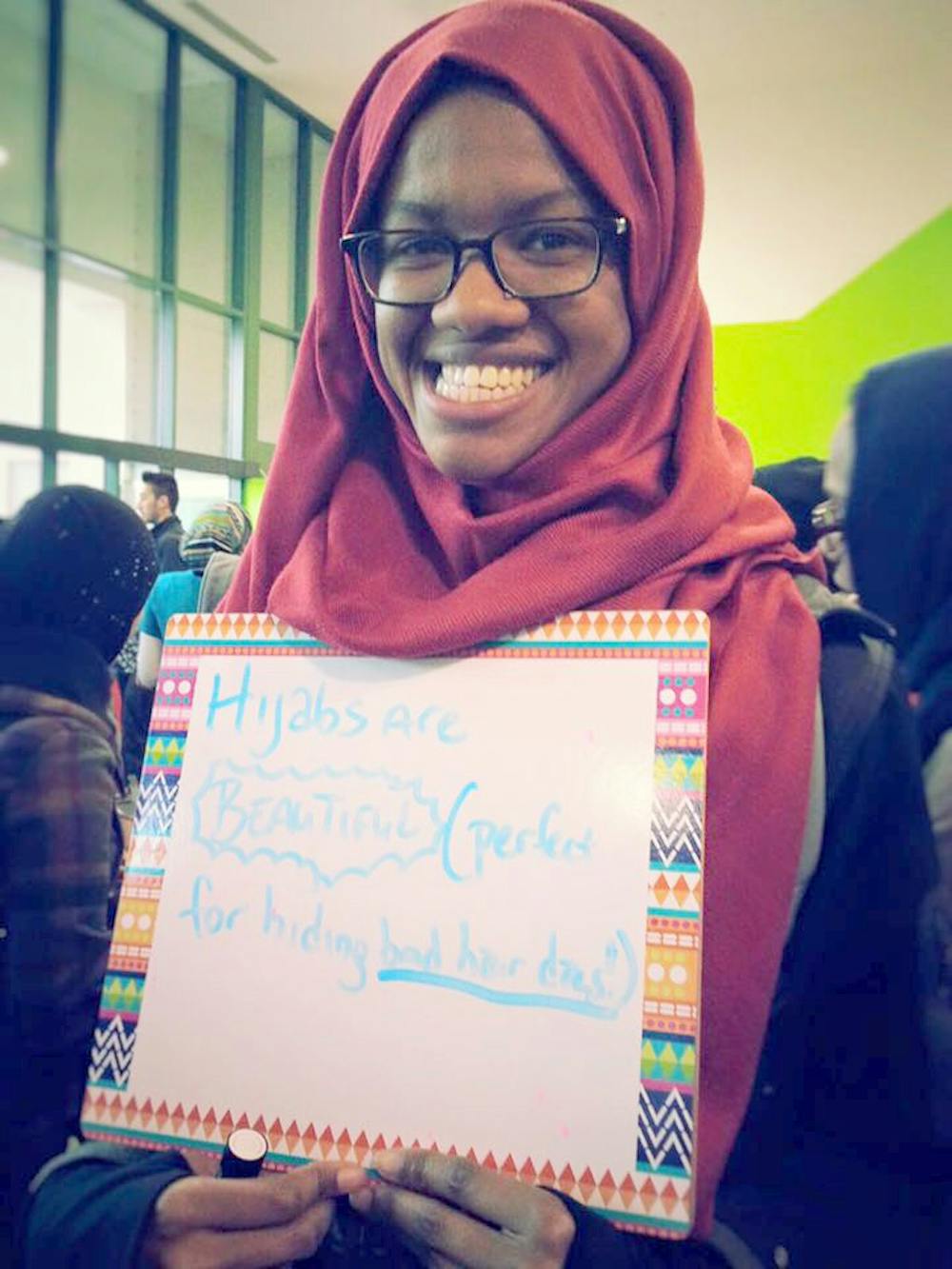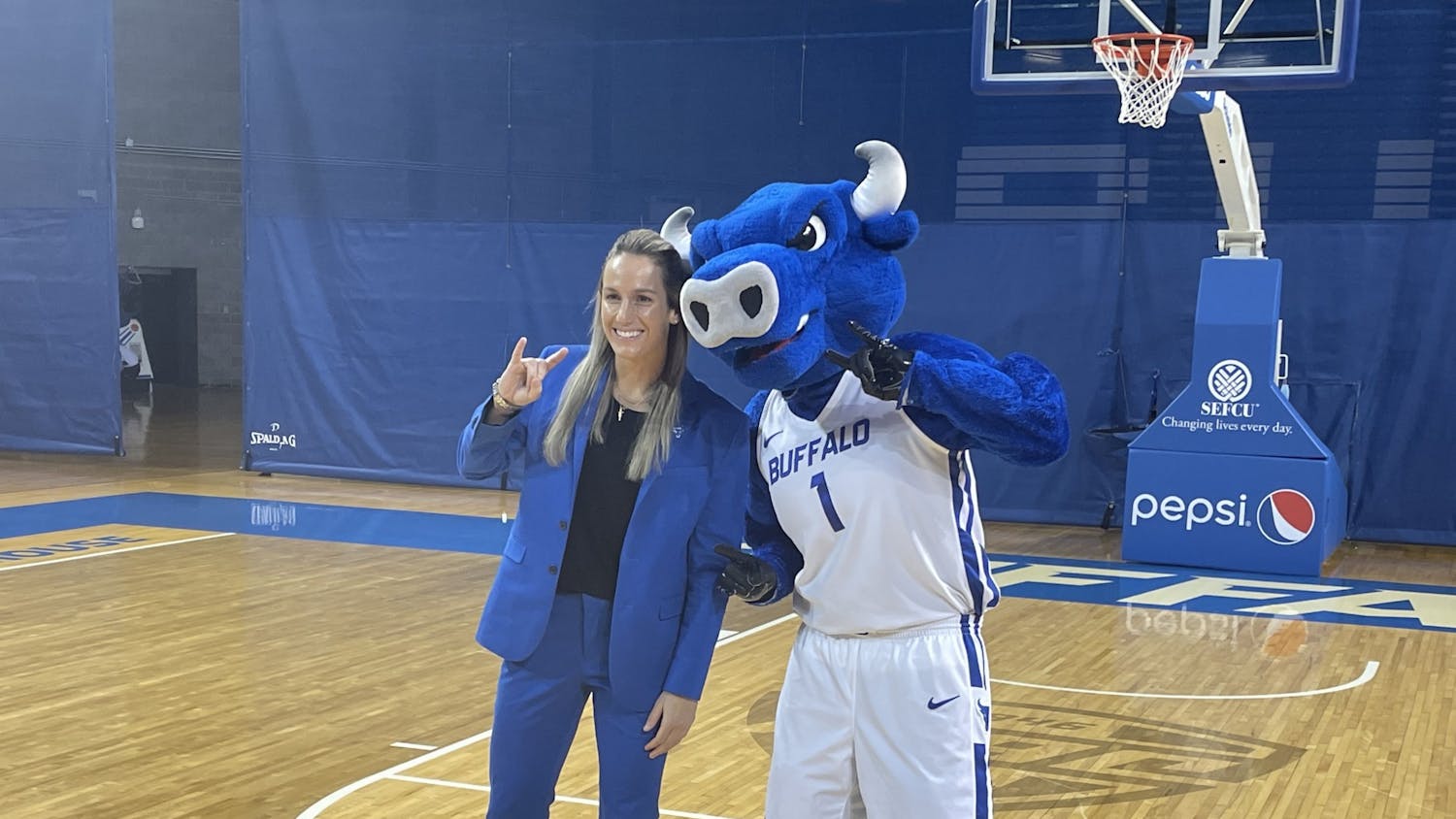Saba AL-Maani was stopped walking and stood still in Alumni Area three weeks ago when she overheard a comment from an older man.
“There’s no such thing as a good Muslim,” said the man said to his wife, according to AL-Maani.
AL-Maani, a junior psychology major, felt it was her duty to speak up to the man, especially because she knows people cannot automatically identify her as a Muslim due to her choice not to wear a hijab and traditional attire.
She said although she tried to defend of her religion, the man would not budge from his original statement.
“He said, ‘You hate me and you’re taught to want to kill me,’” AL-Maani said. “I said, ‘I’m not taught that and right now you’re being very hostile because of my beliefs and yet I have nothing against you and yours. You’re blinded by hatred and anger and fear.’ And I told him, ‘God bless you.’”
And during Thanksgiving weekend, AL-Maani’s friend told her about her family’s store in Buffalo being vandalized with a derogatory mark toward Arabs on the window.
AL-Maani’s personal account is just one local reflection of what some consider a growing sense of Anti-Muslim bigotry and Islamophobia in the United States in the aftermath of the Islamic State’s recent terror attacks in Paris, France. Some Muslims fear the situation might only get worse after the mass shooting in San Bernardino, California, Wednesday, which was a carried out by a Muslim couple.
Nihad Awad, the executive director of the Council on American-Islamic Relations, spoke in New Jersey and condemned the attacks and urged people not to assume that the couple was motivated by radical Islamic terrorism.
According to a recent nationwide poll conducted by the Public Religion Research Institute, 56 percent of Americans feel the values of Islam are at odds with the country.
Members of the Muslim Student Association (MSA) have served as a support system for Muslim students at UB. MSA put up a poster on campus with excerpts from the Quran to show what Muslims believe and show a message of prayer for those affected by the attacks in Paris, Beirut and Iraq.
“Instead of this world of negativity where we constantly have to backpedal and apologize, why not instead of apologizing, we demonstrate what Islam actually is, who we actually are?” said Samiha Islam, a sophomore psychology major and vice president of MSA. “We’re not responsible for terrorism and Islam doesn’t support terrorism.”
At the World Bazaar, a multicultural event sponsored by the Intercultural Diversity Center, which took place the week after the Paris attacks, the UB Muslim Women’s Council allowed women the opportunity to try on a hijab and write down how they felt afterwards.
“After the Paris incidents, when we came to World Bazaar, we had it in our minds that maybe there would be more negative reactions to consider but overall I think UB proved us proud,” Islam said.
The was met by some people asking why they hadn’t been more vocal or created an event in response to the Paris attacks.
“I feel like our club isn’t political so we shouldn’t have to respond to politics or explain current events to anyone,” said Hafsa Zubairi, a senior biomedical sciences major and secretary of Muslim Women’s Council.
Next semester, MSA plans on holding Islamic Awareness Week at the end of February based on the responses they got from its activities at the World Bazaar.
Jessica Bain is a features staff writer and can be reached at features@ubspectrum.com





